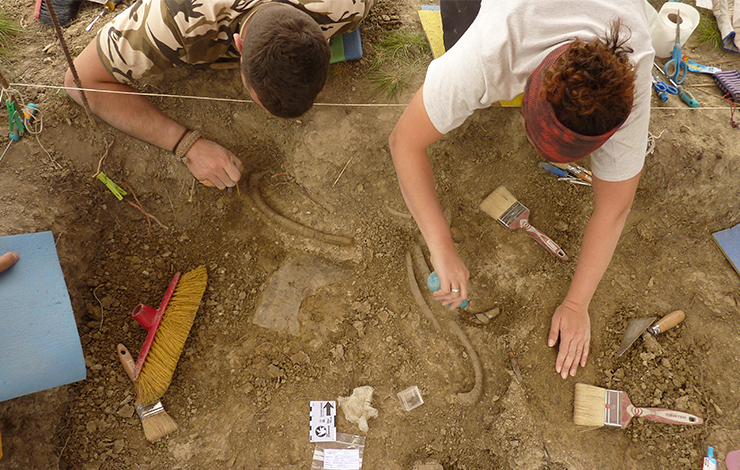03-04-2018

The researcher Miguel Moreno-Azanza, from the Department of Earth Sciences of FCT NOVA, and collaborator of the Museum of Lourinhã is part of an international team of Portuguese and Spanish researchers, who discovered and described a new species of Sirerian, a primitive marine mammal that lived in the waters of Sobrarbe in the Pyrenees.
This new mammal is the first Sirenia with 4 members of Eurasia and the oldest Sirenia of Western Europe, about 42 million years old. Sirenians are the only herbivorous marine mammals and so have earned the nickname "cow-marine". Nowadays, they are represented by dugongs and lamantins.
This new "cow-marine" was found in the Spanish Pyrenees and was described in the journal Scientific Reports. The name of the species, Sobrarbesiren Cardieli, honors the territory of Sobrarbe and the amateur archaeologist Jesus Cardiel Lalueza who found the fossil. This discovery represents a key step in the evolution of the Sirens.
For more information please consult:
Díaz-Berenguer, E., Badiola, A., Moreno-Azanza, M., Canudo, J.I. 2018. First adequately-known quadrupedal sirenian from Eurasia (Eocene, Bay of Biscay, Huesca, northeastern Spain). Scientific Reports https://www.nature.com/articles/s41598-018-23355-w